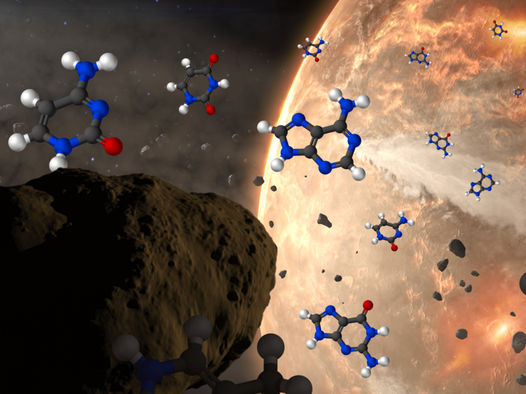Boron-Oxygen Triple Bonds stabilized for the first time ever
World first: chemists from the University of Würzburg have, for the first time ever, succeeded in creating a stable triple bond between the elements boron and oxygen. This success is reported in the journal "Science". Why is this renowned scientific magazine so enthusiastic about the work of the Würzburg chemists? This is because stable triple bonds have already been realized for almost all chemical elements in the world that theoretically allow a connection of this nature to be established between them - with the exception of boron and oxygen. Admittedly, triple bonds between boron and oxygen had already been created in the laboratory, but until now this had only been achieved under extreme conditions: the temperatures had to be well below freezing point for this to happen and both elements have to be present as gases - and in the end the triple bond had no enduring stability. Triple bond stable at room temperature It is a very different story for Würzburg's chemistry professor Holger Braunschweig and his colleagues Achim Schneider and Dr. Krzysztof Radacki. They have produced, purified, and characterized a stable boron-oxygen triple bond at room temperature in commonly used solvents. In its purest form, their product exists as a colorless powder. It can withstand temperatures of up to 100 degrees Celsius for many hours. It is not affected by either daylight or UV radiation. Holger Braunschweig concludes: "For the first time ever, science has at its disposal a stable molecule in which a triple bond has been realized between oxygen and boron." Exciting prospect for basic research What use will this have? There are no foreseeable applications for the molecule in everyday life as yet. But this newly created boron-oxygen triple bond is an exciting prospect for basic research. Reactivity studies have already been conducted on the new molecule at Würzburg's Institute of inorganic chemistry. The researchers have joined other elements directly to the triple bond and also separated them from it further. How can the molecule be modified? What can be added to it? These questions will also set the agenda for the work that the scientists wish to pursue next. Holger Braunschweig: recognized boron expert Holger Braunschweig is a recognized expert in the chemistry of the element boron. His work in this area has recently been acknowledged by the German Research Foundation (DFG): in 2009, he was awarded the Leibniz Prize, which comes with 2.5 million euros in funding and has the reputation of being a kind of "German Nobel Prize". Boron - a unique element What is so special about boron? For chemists, this element represents a challenge: it is electron deficient and in a sense craves these particles. It can only satisfy this craving by forming compounds with other elements. "The compounds that boron creates are highly unusual," explains the professor. A leading textbook on inorganic chemistry even devotes a full chapter to this unique element - this alone is indicative of its special status. Original publication: Holger Braunschweig, Krzysztof Radacki und Achim Schneider; "Oxoboryl Complexes: Boron-Oxygen Triple Bonds Stabilized in the Coordination Sphere of Platinum"; Science, 16. April 2010, 328: Seiten 345-347
Topics
Organizations
Other news from the department science

Get the analytics and lab tech industry in your inbox
By submitting this form you agree that LUMITOS AG will send you the newsletter(s) selected above by email. Your data will not be passed on to third parties. Your data will be stored and processed in accordance with our data protection regulations. LUMITOS may contact you by email for the purpose of advertising or market and opinion surveys. You can revoke your consent at any time without giving reasons to LUMITOS AG, Ernst-Augustin-Str. 2, 12489 Berlin, Germany or by e-mail at revoke@lumitos.com with effect for the future. In addition, each email contains a link to unsubscribe from the corresponding newsletter.
























































